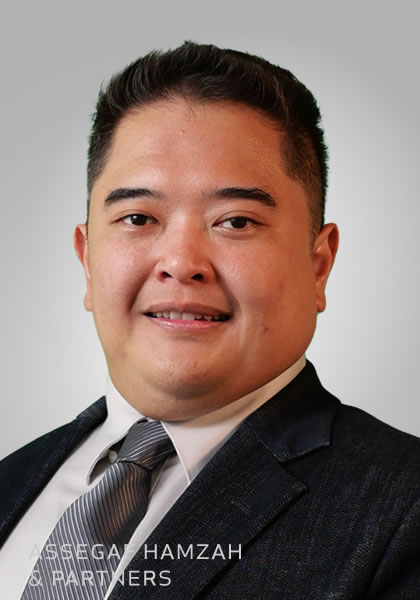Shift in Responsibility as Digital Service Platforms Become Responsible for Copyright Infringement in User-Generated Content

In February 2024, the Constitutional Court handed down a decision that extended the meaning of “business premises” (tempat perdagangan) in Article 10 of the Copyright Law (Law No. 28 of 2014). Previously, such term commonly referred to physical business premises, and Article 10 itself prohibits operators of business premises from allowing the sale and/or reproduction of goods resulting from copyright and/or related rights infringement in locations under their management. Now, as a result of the decision, the term “business premises” include digital service platforms that facilitate user-generated content (“UGC”).
We take a closer look at the decision below.
The Case
The petitioners, consisting of a publishing company, a recording company, and an esteemed singer-songwriter (together, the “Petitioners”), demanded that Articles 10 and 114 of the Copyright Law be declared conditionally unconstitutional against Articles 28C(1) and 28D(1), in conjunction with Articles 1(3), 28I(4) and 281(5) of the Indonesian Constitution, to the extent that the term “business premises” extended to include UGC-based digital service platforms and the element “and/or digital service” (layanan digital) is not added to Article 114 of the Copyright Law. The Petitioners argued that they have suffered economic losses due to various unauthorised use of their copyrighted songs/music by users of UGC platform providers, which resulted in copyright infringements. One of the Petitioners had previously filed another lawsuit against another UGC platform provider for such copyright infringement, but the lawsuit was rejected because the video containing the copyrighted songs/music were uploaded by the users and not the UGC platform provider.
A UGC platform generally makes it possible for its users to upload any content they wish, establishing a space for creative outputs. However, the algorithm of many UGC platforms has allowed content creators to utilise popular songs/music, also known as “sounds”, to boost the engagement of their content without crediting the rights holder. Content creators are often oblivious to Copyright Law, resulting in copyright infringements through such utilisation. Unauthorised use and/or commercial use of copyrighted songs/music violate the author’s exclusive right as regulated in the elucidation of Articles 4 and 9 of the Copyright Law. The elucidation of these Articles requires any party to obtain permission from the authors, copyright holders, and/or related rights holders (together, “rights holder”) before using their songs/music.
As a result of the lawsuit, the Court deemed the narrow meaning of “business premises” in Article 10 of the Copyright Law as unconstitutional against Articles 28C(1) and 28D(1), as well as Article 1(3) of the Indonesian Constitution in the digital era. In its reasoning, the Court found Article 10 of the Copyright Law to open the possibility for unlawful exploitation towards the rights holder. The Court thus called for UGC platform providers to play an active role in ensuring compliance with the Copyright Law in tandem with the applicable Safe Harbour Policy, which separates the liability of UGC platform providers and their users from the legal consequences arising out of UGCs uploaded by the users. It applies under the condition that the UGC platform provider has provided a control mechanism to anticipate and mitigate the circulation of illegal online content. Before the Constitutional Court’s decision, the Safe Harbour Policy was deemed deficient to protect rights holder against copyright infringement. Thus, the decision extended the responsibility of the UGC platform providers to monitor the circulation of UCG for potential copyright infringement.
Implications
The Constitutional Court’s decision officially amended Article 10 of the Copyright Law to read as follows:
| “Operators of business premises and/or User Generated Content-based (UGC) Digital Service Platforms are prohibited from allowing the sale and/or reproduction of goods resulting from Copyright and/or Related Right infringement in the location and/or Digital Service under their management.” (unofficial English translation) |
This amendment requires the UGC to take on a more active role in preventing copyright infringement.
Moreover, the Petitioners demanded that the phrase “deliberately and knowingly” in Article 114 of the Copyright Law be revised to “with knowledge of” (sepatutnya mengetahui) to shift the paradigm of deliberate to negligence. Originally, Article 114 of the Copyright Law penalises every person managing business premises of all forms who deliberately and knowingly allows the sale and/or duplication of goods resulting from copyright infringement of the rights holder in the premises they managed (as stipulated in Article 10 of the Copyright Law) with a maximum fine of IDR100 million. The Petitioners deemed this Article as unfair as it is difficult to differentiate a copyright infringement that results only from the user’s action of uploading versus a copyright infringement that results from the UGC’s interference.
The Constitutional Court ruled that it cannot grant the Petitioners’ further demand as above because doing so would be beyond the authority of the Court. Nonetheless, the Court asserted that the implementation of Article 114 must be adjusted to the new meaning of Article 10 of the Copyright Law as a legal consequence of its decision. Thus, the Court was of the view that law enforcement officers cannot separate the implementation of Article 114 from Article 10 of the Copyright Law.
Next Step Forward
It is worth noting that Indonesia already has comprehensive regulations concerning illegal UGC. These regulations stem from the Indonesian cyber law, specifically Law No. 11 of 2008 on Electronic Information and Transactions (as amended) (“EIT Law”), and its implementing regulations, rather than the Copyright Law. The rules related to illegal UGC under the EIT Law extend to any copyright-infringing content, given that UGC is broadly defined under these rules.
One of the implementing regulations of the EIT Law (i.e., the ESP Regulation) mandates a UGC platform provider to undertake the following mitigation efforts:
-
Ensure that their platforms do not contain any illegal UGC;
-
Refrain from facilitating the dissemination of illegal UGC;
-
Provide authorities with information on any user that uploads illegal UGC on the platform for legal supervisory and/or enforcement purposes; and
-
Remove any illegal UGC from the platform.
In order to comply with points (a) and (b) above, a UGC platform provider must demonstrate that:
-
It has adopted a content governance policy, which must include:
-
The rights and obligations of the platform users when using the platform;
-
The rights and obligations of the platform operator to operate the platform;
-
Provisions on liability regarding the content uploaded by the users; and
-
The availability of the medium, facilitation, and settlement of complaints; and
-
-
It has provided an illegal UGC reporting facility for public use, which must be publicly accessible.
However, this Constitutional Court’s decision appears to impose stricter requirements on UGC platform providers, especially regarding illegal UGC that infringes copyrights. In our interpretation, the decision suggests that Article 10 of the Copyright Law should be read as requiring UGC platform providers to ensure that their platforms do not contain any copyright-infringing content. This may be interpreted to include efforts beyond those outlined in the ESP Regulation as explained above. For instance, it could involve developing or implementing content moderation systems that would review, screen, and filter UGC to identify and address items that violate laws or the platform provider’s terms and conditions.
In light of this decision, UGC platform providers need to reassess their current content moderation policies and systems. The Constitutional Court’s decision implies a proactive role for platforms in preventing copyright infringement. This could mean investing in more sophisticated content detection and filtering systems, and possibly human moderation, to catch potential infringements before they are published. Additionally, platforms may need to improve their response time to takedown requests and enhance their cooperation with authorities and rights holders. It is clear that the decision has significant implications for the operational practices and costs of UGC platforms, and it underscores the importance of ongoing legal and regulatory vigilance in this rapidly evolving digital landscape.
If you have any queries on the above, please feel free to contact our team members below who will be happy to assist.
Have any Question please contact
Achmad Faisal Rachman and Daniar Supriyadi also contributed to this alert.



